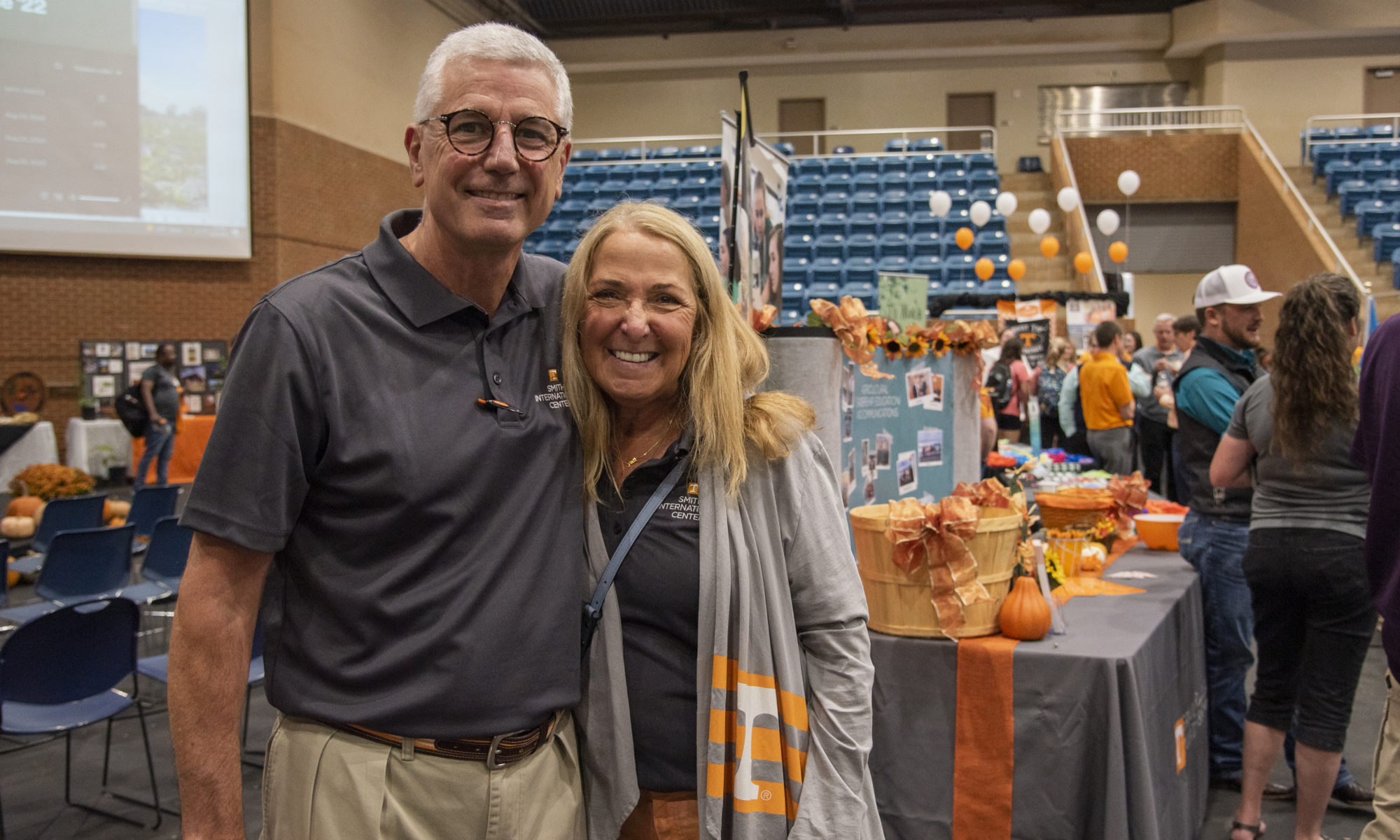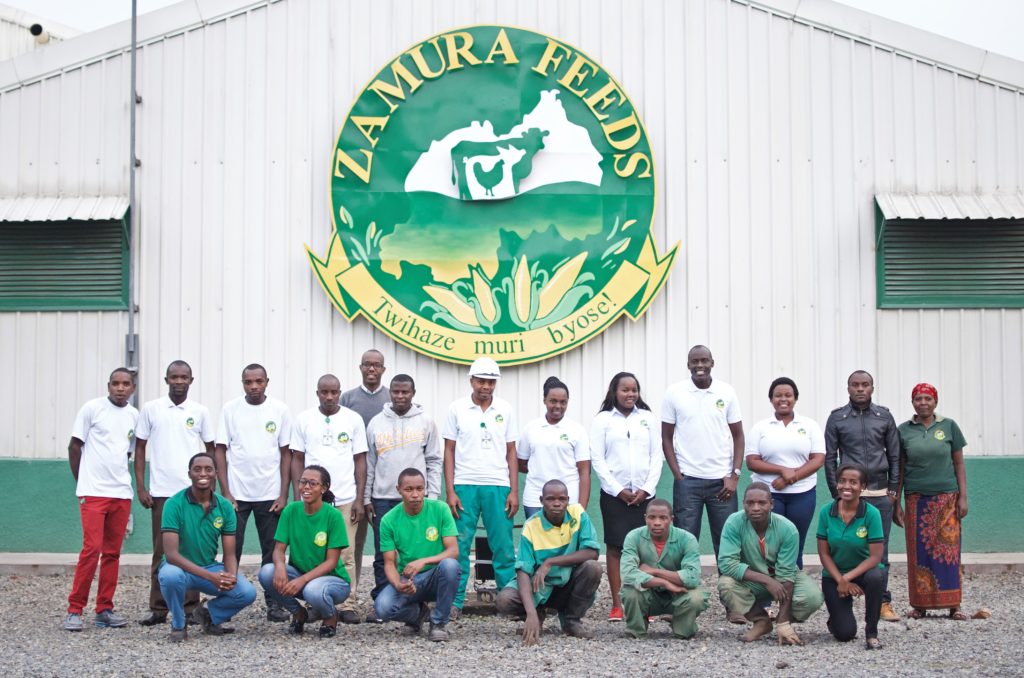
By Mary Shelley-Snell
In 2016, Donnie Smith (B.S. animal science, CEO of Foster Farms) retired from a thirty-plus-year career in the poultry industry. Former CEO of Tyson Foods, Smith had long felt called to utilize the knowledge he’d gained from his career to help address hunger issues in Africa.
“It was during a quiet time one morning, probably around 2010, I just got the impression that God wanted me to use what I’d learned at Tyson for something more,” Smith explained. “I felt called to see if there might be a way to take my knowledge of the poultry chain and help smallholder farmers in Africa.”
Over the next ten years, he and his wife Terry (B.S. elementary education ’80) got to work doing just that. They endowed the Donald and Terry Smith Chair for International Sustainable Agriculture in 2014, then expanded that endowment in 2017 to create the Smith Center for International Sustainable Agriculture (Smith Center) at the University of Tennessee Institute of Agriculture (UTIA). We sat down with Smith recently to look back on that experience and see how the different projects that came from his calling are doing now.
The Smiths were able to learn more about the needs of Rwandan farmers by connecting with organizations already working in Rwanda, like Bridge2Rwanda and OneEgg. In 2012, they discovered that there wasn’t a single feed mill in the country, which quickly became the focus of their work. After meeting with the Rwandan Minister of Agriculture and like-minded investors, they started the Africa Sustainable Agriculture Project Foundation (ASAP) to work towards providing support to agricultural development in Africa.
In the fall of 2014, ASAP had the opportunity to launch Zamura Feeds, the first feed mill in Rwanda. Since then, ASAP has expanded that investment into three enterprises: 1) a 10,000-hen capacity table egg farm that employs over twenty women, 2) Feed the Future Tworore Inkoko, Twunguke (TI), a project that focuses on broiler chicken production through partnerships with the Smith Center and the US Agency for International Development (USAID), and 3) Seed4Africa, a seed company for soya and maize developed with Bridge2Rwanda.

ASAP has grown through adversity and seen its projects reach successful milestones. “This year the feed mill will be profitable. ASAP took over the table hen farm for OneEgg and that’s starting to be profitable,” Smith explained. “With the help of UTIA and the Smith Center, the TI project has continued to grow and develop. In addition to broiler chicken production, we’ve added other crops for farmers to grow on their small plots of land. This way, even if the chicken market is depressed, farmers can still have a steady income from horticulture.”
Through partnerships with UTIA, ASAP has also incorporated the land grant mission by using extension methods to teach people about conservation agriculture. Smith is hopeful about what ASAP can accomplish in the future. “I think we’ve finally developed an effective model,” he said. “If we can do this in Rwanda, we can do it anywhere. I hope we will one day be able to recreate these projects elsewhere.”
The Smith Center is an important piece of this vision for Smith. “If we are going to solve food insecurity issues, we need people that are passionate about the land grant mission and are instilling that same passion into students,” he said. “The difficulties of implementing sustainable agriculture in Rwanda require people that understand the principles of conservation agriculture and have the resources to do something with that knowledge. Without factoring in predicted population growth, we already have enough food insecurity in this world – and hungry people do desperate things.”
Evidence of this can be seen in the story of Smith’s friend Frozene in Rwanda. She was recruited for the TI broiler project, where she learned how to produce chickens. In eight weeks, she was able to make enough extra income to match what she and her husband had saved for the past four years. They were able to buy a pregnant cow that produced milk for their family for a year. From that cow, they were able to build their herd into two cows and a goat, both of which improved the nutritional outcomes for their family. Frozene was then able to buy insurance, pay the fees to send her children to school and invest further in her family’s farm.
Keith Carver, senior vice chancellor and senior vice president for UTIA, is also hopeful about the impact of this partnership. “Donnie and Terry are passionate about solving the challenges associated with global agriculture. Here at UTIA we are conducting research and educating future generations with the goal of addressing those challenges,” Carver said. “We are inspired by their commitment and excited to continue our work together to live out the land grant mission as it applies internationally.”
When asked why Tennesseans should care about stories like these, Smith had one response. “Maybe you can’t go out and change the world, but I guarantee you can help at least one person out there, in the world, or right there in your own community,” he said. “If you can help just one other person, then you should. And our experience working in Rwanda shows that we can.”
Follow along this week as the Smith Center team reflects on a recent visit to Rwanda. Be sure to check out our social media @utsmithcenter to see how we are working to #GrowGobal through the land grant mission.